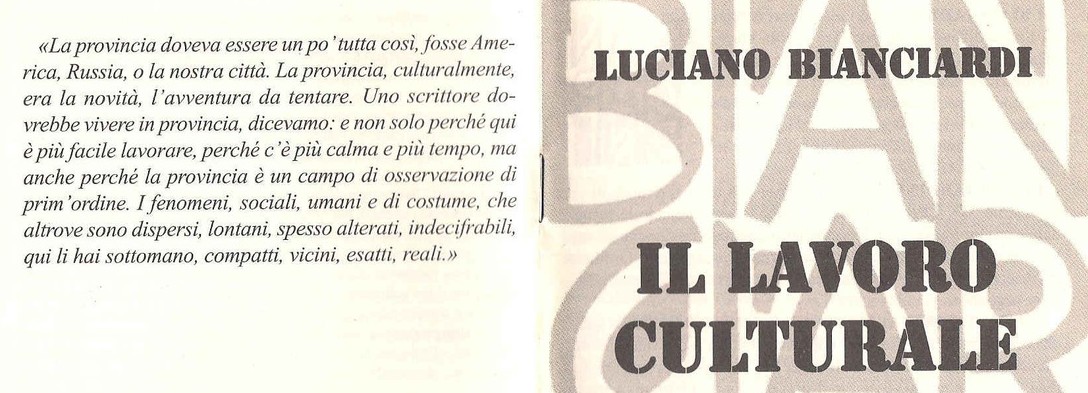
Corinto couldn't bear the middle class. He said: "When we are in power, a selection will be mandatory. Someone will come over and say that he wants to be an accountant. 'So,' I'll say, 'you want to be an accountant, right?' 'Yes,' he says, 'an accountant.' 'OK,' I say, 'see--The accounts department is on the second floor. You notice that sack there, in the yard?' 'Yes,' says the accountant. 'It's full of marble powder,' I add. 'The account department is on the second floor. Now, my dear accountant, you are bringing that sack full of marble powder up to the second floor, where the account department is. Get it?' You know, marble powder is a dry and heavy stuff, a full sack must weigh 100, perhaps 150kg. He who manages to heave the bulk becomes accountant--otherwise, goodbye. What are supposed to be all these crappy bourgeois accountants with tiny chests that look like that of a pigeon? We need strong and sturdy people, like they have in the Soviet Union. And not too many. Just a few clerks: for a town like ours two or three will suffice. A little notebook for one of them, a pencil to jot down everything, and that's it. The others, to work, at the cooperative, when the time of threshing or sowing comes."
Original text:
Corinto non poteva soffrire il ceto medio. Diceva: «Quando comanderemo noi si farà la scelta. Viene uno e dice che vuol fare il ragioniere. “Tu”, dico io allora, “vuoi fare il ragioniere, vero?”. “Sì”, risponde quello. “Proprio il ragioniere?” “Sì”, dice lui, “il ragioniere”. “Allora”, dico io, “guarda. La ragioneria è al secondo piano. Lo vedi quel sacco lì, nel cortile?”. “Sì”, fa il ragioniere. “E pieno di polvere di marmo”, faccio io. “La ragioneria è al secondo piano. Ora tu, caro ragioniere, al secondo piano, dove c’è la ragioneria, ci porti il sacco pieno di polvere di marmo. E chiaro?” Sai, la polvere di marmo è pesante e compatta, un sacco pieno sarà un quintale, forse un quintale e mezzo. Chi ce la fa diventa ragioniere, se no niente. Cosa sono questi ragionieri borghesi mezzeseghe, con certi toracini che sembrano quelli di un piccione? Ci vuole gente forte, robusta, come nell’Unione Sovietica. E poca. Pochi impiegati: per una città come la nostra ne basteranno due o tre. Un quadernino per uno, un lapis, per segnare tutto, e via. Gli altri al lavoro, alla cooperativa, quando c’è la trebbiatura o la semina».
Okay. I understand the context more clearly now: it seems to be in a commune. This is about a job selection, right?
IDEA: Some readers might want to know the historical period and location. (For some reason, I think of Corinth, Greece in the mid-20th century.)
Hi, Tim! It's Italy, 1950. Post-war times, when the Left was on the brink of coming to power, or so they thought. At least the Communist party was very strong back then